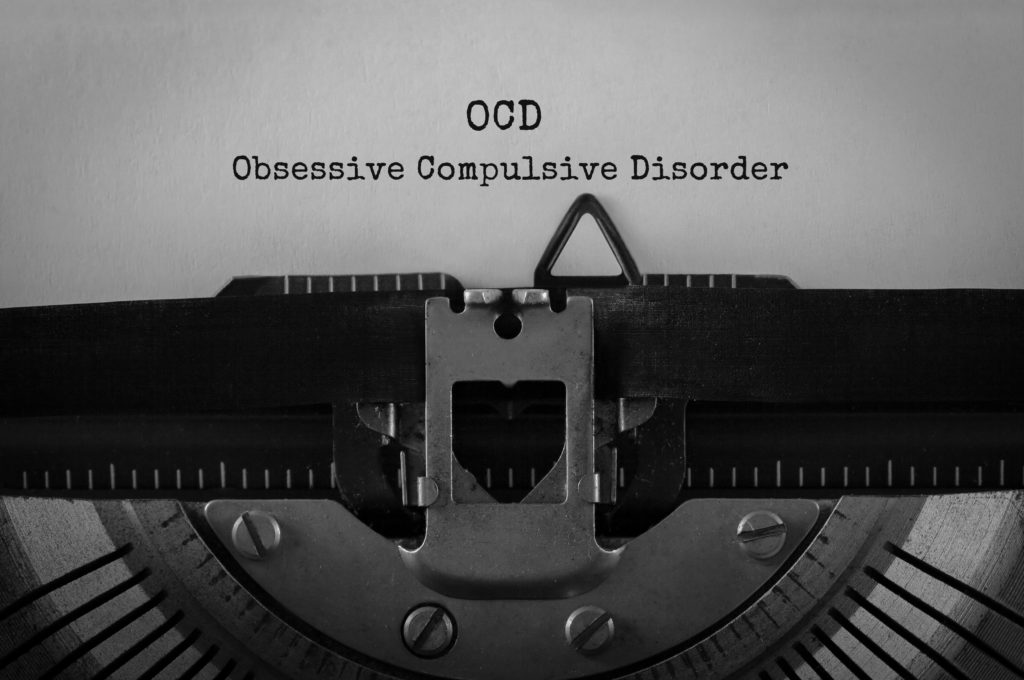The acronym OCD, or obsessive-compulsive disorder, is a common colloquial in everyday speech. Regularly used to describe behavior that is nitpicky or considered slightly neurotic in the public eye, OCD is often viewed as an occasional trait rather than a serious mental health challenge for those who have received a clinical diagnosis. In reality, OCD is not a casual condition; in severe cases, it can be crippling, affecting everything from job performance to the ability to leave the house in the morning.
For those with OCD, proper care, whether in the form of a stay in a mental health rehabilitation center, the use of medication, or both, is critical to managing symptoms and minimizing their effects. This is how to know if you have OCD.

OCD Symptoms Checklist
An abbreviation for obsessive-compulsive disorder, OCD is characterized by recurring and omnipresent thoughts, ideas, and motivations that stand in the way of everyday life. These intrusive thoughts can result in compulsive behaviors, like washing hands multiple times before leaving the restroom, turning lights on and off repeatedly before leaving a room, or cleaning each room in a home multiple times a day.
Not doing these things is not a matter of will; failing to accomplish these set routines can cause great stress and anxiety, sometimes to the point of triggering panic attacks. Affected individuals will continue to impose their fears, worries, and compulsions on those around them, falling further into these dangerous thought patterns.
It is important to note that a few random compulsive behaviors do not constitute OCD; for many, this can be a very normal part of life. For a clinical diagnosis, patients must display:
- Time-consuming compulsions interfering with an hour or more each day
- Major distress due to compulsive behavior
- Impairment of work, school or social functions
Around 1.2% of the population lives with OCD (American Psychiatric Association), and the condition affects more women than men.

According to the U.S. National Institute of Mental Health, People with OCD may have symptoms of obsessions, compulsions, or both. These symptoms can interfere with all aspects of life, such as work, school, and personal relationships. Obsessions are repeated thoughts, urges, or mental images that cause anxiety. Common symptoms include:
- Fear of germs or contamination
- Unwanted forbidden or taboo thoughts involving sex, religion, or harm
- Aggressive thoughts towards others or self
- Having things symmetrical or in a perfect order
Compulsions are repetitive behaviors that a person with OCD feels the urge to do in response to an obsessive thought. Common compulsions include:
- Repeatedly checking on things, such as repeatedly checking to see if the door is locked or that the oven is off
- Compulsive counting
- Excessive cleaning and/or handwashing
- Ordering and arranging things in a particular, precise way
Not all rituals or habits are compulsions. Everyone double checks things sometimes. But a person with OCD generally:
- Doesn’t get pleasure when performing the behaviors or rituals, but may feel brief relief from the anxiety the thoughts cause
- Experiences significant problems in their daily life due to these thoughts or behaviors
- Can’t control their thoughts or behaviors, even when those thoughts or behaviors are recognized as excessive
- Spends at least 1 hour a day on these thoughts or behaviors
Some individuals with OCD symptoms also have a tic disorder. Motor tics are sudden, brief, repetitive movements, such as eye blinking and other eye movements, facial grimacing, shoulder shrugging, and head or shoulder jerking. Common vocal tics include repetitive throat-clearing, sniffing, or grunting sounds.
Symptoms may come and go, ease over time, or worsen. People with OCD symptoms may try to help themselves by avoiding situations that trigger their obsessions, OCD and alcohol are a very common mix or they may use drugs to calm themselves. Although most adults with OCD symptoms recognize that what they are doing doesn’t make sense, some adults and most children may not realize that their behavior is out of the ordinary. Parents or teachers typically recognize OCD symptoms in children. If you think you have OCD symptoms, talk to your doctor about your symptoms. If left untreated, OCD can interfere in all aspects of life.
Manifestation of Obsessive-Compulsive Disorder Traits
This condition often arises early in life, with OCD symptoms appearing in childhood, adolescence, or young adulthood in most cases. The average age of diagnosis is 19. How OCD manifests can be very specific from one person to another, but the first signs often include:
- Fear of germs, illness and dying
- Fears about having made mistakes or not doing things “right”
- Unwanted thoughts about causing harm
- Compulsive activities related to fears, like sterilizing areas to prevent germs, excessive hand washing and repeating actions to make sure situations are correct
- Regular apologizing or explaining benign situations
- Arranging and organizing arbitrary items
- Asking for constant reassurance of safety or acceptance in normal situations
In many cases, these OCD symptoms will come on slowly. Consistent thoughts regarding something like death may result in an obsession with cleanliness, while frequent apologies seemingly out of nowhere can indicate an obsession with correctness. In children, these kinds of things may be easily confused with standard learned behaviors. In very rare cases, symptoms can appear all at once as if out of nowhere, but this is not at all common. In all cases, without proper treatment, these kinds of indicators will only continue to worsen. Obsessions will grow deeper and compulsions will intensify.
Signs and OCD Symptoms in Adults
Due to the widespread colloquial use of the concept of OCD, noticing true signs in others can be challenging. When considering OCD symptoms to potentially bring up with a friend or loved one, it’s important to detach the common use of OCD from any signs you may believe you are seeing. Instead, focus on these kinds of incidents:
- Obsession with minute details of ordinary life and a fixation on the associated potential consequences, like a sick individual potentially passing on deadly germs
- Insisting on a particular order of items, like keeping clothes color-coded or books alphabetized or put on shelves by height
- An increasing worry about normal circumstances, like catching a cold
- The start of repetitive behaviors, like needing to wash hands multiple times or, in the case of a coworker, compulsively cleaning a workspace
Again, it is important to note that behavioral idiosyncrasies that individual displays, like obsessive attention to detail, that may be referred to as OCD behavior in a colloquial manner are not a proven sign of a diagnosable case of OCD.
Alternatives to OCD
A shift in behavior is not necessarily always correlated with OCD symptoms, and other mental illnesses can be associated with what many people understand as the signs of obsessive-compulsive disorder. Anxiety, for example, can result in unnecessary worry about things like death and dying or the danger of germs, while conditions like schizophrenia can trigger sudden shifts in mood, life perspective, and temperament.
For those showing less severe signs, an obsessive-compulsive personality disorder may be the issue. OCPD is a distinct personality disorder that is characterized by less severe forms of the habits that define OCD, as a concern with orderliness, attention to detail, and perfection in results. This can result in some similar behaviors, like consistently organizing home areas and workspaces or a strong need to control a given environment. While OCPD can interfere with relationships and job performance, it doesn’t result in the severe consequences that untreated OCD can cause.

Types of Obsessive-Compulsive Disorder Traits
As with numerous other forms of mental illness, OCD symptoms can be broken down into numerous subcategories. These differentiations aren’t necessarily clinical and aren’t broken out in the DSM-V but are commonly accepted by many OCD counselors and therapists. By identifying subtypes, it’s often easier to create an effective plan of treatment.
Ordering and Symmetry
Those who are obsessive about ordering and symmetry are concerned with keeping possessions and item locations in a neat, orderly manner that exceeds what other people may consider neat or clean. This type of OCD Symptoms can include:
- A compulsive need to organize items in a particular way
- An obsession with symmetry using criteria like size or color
- Counting of objects, sometimes repetitively
- Rituals surrounding organizing objects
- Panic or anxiety when items aren’t properly organized
Contamination and Cleaning
Those with a focus on contamination and cleaning tend to hyperfocus on areas related to germ elimination, disease prevention, and cleanliness that goes above and beyond normal human standards. This type of OCD Symptoms can include:
- An obsession with cleanliness, both physical and mental
- Fear of disease and biological materials
- Avoidance of germ-ridden areas, like bathrooms and medical facilities
- Ongoing cleaning of the body, clothing and physical areas
- Washing or cleaning rituals, often related to showering or hand washing
Hoarding
Hoarding can be associated with several different mental health issues but can be a component of OCD in some people. People with this type of OCD Symptoms can have:
- A belief that disposing of items can cause harm
- A strong need to protect personal belongings
- A fear of throwing away potentially important information
- Trouble touching hoarded materials due to the potential for contamination
- A feeling of incompleteness when not surrounded by chosen possessions
Troubling Thoughts
Not all forms of OCD involve obsessive actions. In some cases, OCD primarily consists of intrusive thoughts that interfere with daily life. In this case, these thoughts tend to be more forbidden, about disturbing or uncomfortable topics that cause distress. This type of OCD Symptoms can include:
- Intrusive thoughts that are damaging or upsetting
- Shame surrounding troubling thoughts
- Fear of acting on inappropriate thoughts
- Feelings of responsibility for negative actions
- Fear of harming others, either intentionally or unintentionally
- An ongoing need for reassurance of being a good or worthy person
- Rituals designed to expel or avoid negative thoughts
Behavioral Tics
Behavioral tics are often thought of as a part of conditions like Tourette’s but can also be a part of an OCD diagnosis. How these appear can vary but often include shrugging, twitching, blinking, or throat clearing. Behavioral tics generally accompany other OCD symptoms rather than standing alone.
Diagnosing OCD
Diagnosis of OCD requires a meeting with a trained mental health professional, ideally either a psychologist or a psychiatrist. In an appointment, a patient will be asked questions related to behavior and thought patterns, including common symptoms as well as less common manifestations. The extent of these thoughts and behaviors will be evaluated, as well as an analysis of the likelihood of recurrence as well as the impact on daily life. By taking into account all of the criteria outlined in the DSM-V, it is possible to determine whether or not an individual truly has OCD.
It’s possible to believe you have OCD, or that a loved one is showing signs, but all mental health challenges should be properly diagnosed by a health care professional. Self-diagnosis is always discouraged.
Reclaim Your Life From OCD Symptoms
Obsessive-Compulsive Disorder (OCD) is a chronic disorder that should not be taken lightly. We Level Up CA Treatment Center can provide you, or someone you love, treatment with professional and safe care. Feel free to call us to speak with one of our counselors. We can inform you about this condition by giving you relevant information. Our specialists can help you reduce OCD symptoms. Please know that each call is private and confidential.